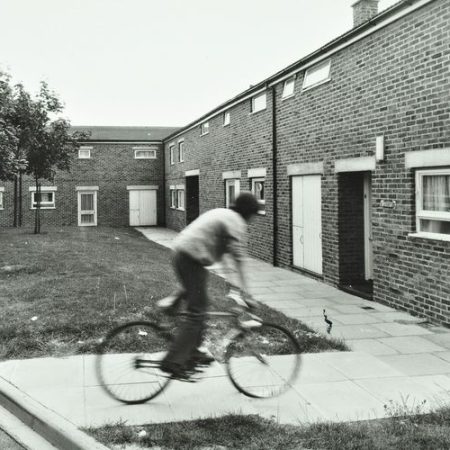Andover: An Overspill Story is a 12-month community project created with the support of the British Film Institute, and now HAT awards a further £250 to develop Wessex Sound and Film Archive (WFSA) collections. The focus of the project is on Andover’s ‘overspill’ development and originally called London ‘overspill’ estates because, despite being over 50 years old, this aspect of the town’s history is not well represented in screen heritage collections.
The London ‘overspill’ estates were council houses originally built by London County Council to move people out of London, as part of a drive to relocate residents out of the capital to other areas in the South East from the 1930s through to the 1970s. The image used above is Andover: boy rides a bicycle on a housing estate, image © London Metropolitan Archives (City of London).These iconic estates are a key part of the history of Andover but have left a very small archival footprint. This project aims to redress that by working with the community to capture memories of life on the estates from the past, present and on into the future.
Since its launch in January 2024, this project has received an overwhelmingly positive response from the town’s residents, community groups, schools and local artists. Since going live, WFSA has started to acquire some audio-visual and archival material that documents Andover’s ‘overspill’ history.
To round off the project and celebrate this collection of new stories and memories that have been acquired, WFSA will display these archives for public benefit by curating an exhibition about the town’s ‘overspill’ history that will be on display in Andover Museum. Negotiation is underway and this display is scheduled for March 2025 for six weeks. There will also be a display space onsite at Hampshire Record Office later on in the year.
The ‘overspill’ estates are over 50 years old and there is concern amongst the town that the history of the estates will be lost for current and future generations as their original inhabitants get older. Action is needed now to preserve their history in the archives and give it a platform, there is a chance that the history and lived experience of those connected to Andover’s ‘overspill’ heritage will lose their place in late 20th century history.

